I’ve been weeding books at our house this week — a sad necessity of moving, but an interesting examination of my priorities too. With each title I’ve been asking myself WHY I feel the need to own it. If my reasons aren’t sound enough to justify it taking up space in our new apartment, then the book goes in the very large pile of books that will soon find new homes with local friends, local teachers, and the library of Camp Wing (where Gareth and I tied the knot almost a year ago!).
While wading through these books I’ve been thinking a lot about the changes in children’s and YA publishing in the last 15 years and thinking specifically about the titles and series that have, in some meaningful way, changed the landscape of publishing. I’m thinking not just of books that have been big or broken new ground, but of books that have made the publishing world think differently, or books that opened doors for writers to explore new avenues, or books that have helped us unearth new corners of the literary marketplace.
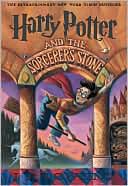 The biggest and most obvious “game-changer” of this sort was, of course, the Harry Potter series. Harry boosted children’s book sales across the board, raised the profile of children’s literature, lit a fire under publishers to publish more fantasy, removed much (though certainly not all) of the stigma from said genre, turned countless reluctant readers into avid ones, and prompted a flood of new middle grade fantasy series to land in stores, each being promoted as “the next Harry Potter.”
The biggest and most obvious “game-changer” of this sort was, of course, the Harry Potter series. Harry boosted children’s book sales across the board, raised the profile of children’s literature, lit a fire under publishers to publish more fantasy, removed much (though certainly not all) of the stigma from said genre, turned countless reluctant readers into avid ones, and prompted a flood of new middle grade fantasy series to land in stores, each being promoted as “the next Harry Potter.”
(Note that any book that spawns such comparisons — that becomes the object following the word “next” in ad copy — is almost always a game-changer.)
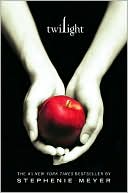 And then there’s Twilight — the phenomenon YA fiction has been waiting for. First the teenagers of the world fall under its sparkly-skinned spell, then their mothers (and a handful of fathers) follow suit, and suddenly reading (and reading YA novels) looks COOL again! Hallelujah! The upshot it that YA sales are looking good. The down side is that the shelves of every YA section are now overloaded with paranormal romance, each touted as “the next Twilight.” There’s your final proof that Twilight has changed the game.
And then there’s Twilight — the phenomenon YA fiction has been waiting for. First the teenagers of the world fall under its sparkly-skinned spell, then their mothers (and a handful of fathers) follow suit, and suddenly reading (and reading YA novels) looks COOL again! Hallelujah! The upshot it that YA sales are looking good. The down side is that the shelves of every YA section are now overloaded with paranormal romance, each touted as “the next Twilight.” There’s your final proof that Twilight has changed the game.
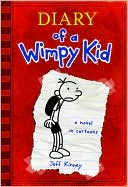 Now how about Diary of a Wimpy Kid? I think Jeff Kinney might be the fastest game-changer on this list. In record time he’s become the hero of kids aged 7-11, many of whom were not previously kids who rejoiced about reading. Generations of kids have been wetting their pants with laughter over Calvin and Hobbes, but it took a long time for anyone to take a character with similar (what shall we call them…?) “virtues” to Calvin and let him break out of the comics frame. Now lots of books combining both prose and comics in diary form are coming down the line.
Now how about Diary of a Wimpy Kid? I think Jeff Kinney might be the fastest game-changer on this list. In record time he’s become the hero of kids aged 7-11, many of whom were not previously kids who rejoiced about reading. Generations of kids have been wetting their pants with laughter over Calvin and Hobbes, but it took a long time for anyone to take a character with similar (what shall we call them…?) “virtues” to Calvin and let him break out of the comics frame. Now lots of books combining both prose and comics in diary form are coming down the line.
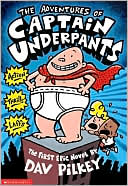 Of course, it’s possible to argue that Captain Underpants was the first to change the game in this prose + comics way. I’d definitely call the Captain a game-changer, but for a slightly younger audience than Jeff Kinney. The Captain showed the world that silliness is a solid lure for the beginning reader set. And that maybe even classroom teachers can embrace a bit of bathroom humor, if it keeps kids reading.
Of course, it’s possible to argue that Captain Underpants was the first to change the game in this prose + comics way. I’d definitely call the Captain a game-changer, but for a slightly younger audience than Jeff Kinney. The Captain showed the world that silliness is a solid lure for the beginning reader set. And that maybe even classroom teachers can embrace a bit of bathroom humor, if it keeps kids reading.
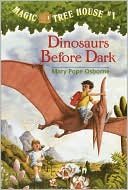 And speaking of keeping kids reading… How about Magic Tree House? Just because they can’t handle a lot of words per page doesn’t mean readers can’t handle 50+ books per series. I think it took publishers until this series to truly realize that.
And speaking of keeping kids reading… How about Magic Tree House? Just because they can’t handle a lot of words per page doesn’t mean readers can’t handle 50+ books per series. I think it took publishers until this series to truly realize that.
Other game-changers:
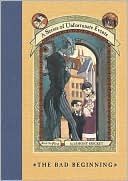 A Series of Unfortunate Events — though maybe not for all the reasons YOU’RE thinking of. I’m thinking this series changed the game by bringing paper-over-board to the mainstream. Yes, the Dear America books did it first, but those felt more… “educational” than the Snicket books did, and those books weren’t strictly a series. Suddenly Lemony Snicket’s books hit the bestseller lists and publishers are in love with books in POB. (Was anyone familiar with the acronym “P.O.B.” in the years before Lemony? We booksellers certainly weren’t.)
A Series of Unfortunate Events — though maybe not for all the reasons YOU’RE thinking of. I’m thinking this series changed the game by bringing paper-over-board to the mainstream. Yes, the Dear America books did it first, but those felt more… “educational” than the Snicket books did, and those books weren’t strictly a series. Suddenly Lemony Snicket’s books hit the bestseller lists and publishers are in love with books in POB. (Was anyone familiar with the acronym “P.O.B.” in the years before Lemony? We booksellers certainly weren’t.)
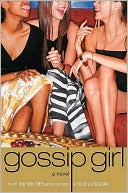 Gossip Girl. Like it or not, this series threw open the door for publishers to sign a stream of series I generally refer to as (ahem) B*tch Lit. Catty teens wear designer clothes and treat one another in generally appalling fashion, in the process upending the unwritten rule that books written for teens generally ought to impart (hmm… how to say this…?) “better” values? Higher priorities? A bit of wisdom, perhaps? An adult sensibility? Good role models? OR, if they aren’t going to do these things (and that’s okay too!) they should be relatively clean fun. They should not have “overly mature” content. Suddenly Gossip Girl, followed closely by The Clique and others in the same vein, arrives and provides teens with the kind of pop culture content and (in some cases) sex education that they previously got via TV, movies, and magazines. THAT, my friends, is game-changing.
Gossip Girl. Like it or not, this series threw open the door for publishers to sign a stream of series I generally refer to as (ahem) B*tch Lit. Catty teens wear designer clothes and treat one another in generally appalling fashion, in the process upending the unwritten rule that books written for teens generally ought to impart (hmm… how to say this…?) “better” values? Higher priorities? A bit of wisdom, perhaps? An adult sensibility? Good role models? OR, if they aren’t going to do these things (and that’s okay too!) they should be relatively clean fun. They should not have “overly mature” content. Suddenly Gossip Girl, followed closely by The Clique and others in the same vein, arrives and provides teens with the kind of pop culture content and (in some cases) sex education that they previously got via TV, movies, and magazines. THAT, my friends, is game-changing.
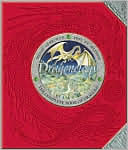 In thinking about game-changers I remarked out loud to Gareth that picture books and non-fiction are a lot harder. I can think of a lot of books that became bestsellers or were highly lauded, but few of them broke any new ground, format-wise, or spawned spin-offs (say that ten times fast) or initiated trends that I’m personally aware of. Gareth, though, suggested that maybe the Ology books fit the bill. This is a good suggestion, I think, though maybe one with a shorter-lived impact in the trend-setting arena. Definitely these books established a new way of engaging readers and organizing content. And they did indeed prompt many a publisher to try creating their own Ology-esque books and sell them to the same audience. But at our store we witnessed a significant dwindling of interest in said format after maybe 2 or 3 years of Ologymania. So… Were these books game-changers? Yes. But are we still feeling their impact? Hard to say.
In thinking about game-changers I remarked out loud to Gareth that picture books and non-fiction are a lot harder. I can think of a lot of books that became bestsellers or were highly lauded, but few of them broke any new ground, format-wise, or spawned spin-offs (say that ten times fast) or initiated trends that I’m personally aware of. Gareth, though, suggested that maybe the Ology books fit the bill. This is a good suggestion, I think, though maybe one with a shorter-lived impact in the trend-setting arena. Definitely these books established a new way of engaging readers and organizing content. And they did indeed prompt many a publisher to try creating their own Ology-esque books and sell them to the same audience. But at our store we witnessed a significant dwindling of interest in said format after maybe 2 or 3 years of Ologymania. So… Were these books game-changers? Yes. But are we still feeling their impact? Hard to say.
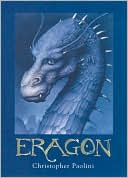 The Eragon series for me falls into the same category. Right after Christopher Paolini became the teen every kid wanted to be, I heard kids saying all the time, “Well, I’M writing a book right now, and…” The example that Christopher set for them was game-changing, and it showed in their deep, deep devotion to his books. But two things didn’t happen to keep that ball rolling, I think: 1) Chris’s audience aged out of the series while they waited and waited and waited for new installments to arrive, 2) Chris himself got older, and 3) there was no string of teen successes to follow his. The number of kids writing thousand-page fantasy novels fueled by Chris Paolini’s example eventually petered out. Had other teen writers hit the spotlight soon after he did, though, I think Eragon would have been a game-changer in a more meaningful way — in a “first book in a spate of successful teen publishing deals” way. I think then the trend of kids writing 1,000-page novels and harboring publishing dreams might have continued longer. (I’d have liked to have seen that happen.)
The Eragon series for me falls into the same category. Right after Christopher Paolini became the teen every kid wanted to be, I heard kids saying all the time, “Well, I’M writing a book right now, and…” The example that Christopher set for them was game-changing, and it showed in their deep, deep devotion to his books. But two things didn’t happen to keep that ball rolling, I think: 1) Chris’s audience aged out of the series while they waited and waited and waited for new installments to arrive, 2) Chris himself got older, and 3) there was no string of teen successes to follow his. The number of kids writing thousand-page fantasy novels fueled by Chris Paolini’s example eventually petered out. Had other teen writers hit the spotlight soon after he did, though, I think Eragon would have been a game-changer in a more meaningful way — in a “first book in a spate of successful teen publishing deals” way. I think then the trend of kids writing 1,000-page novels and harboring publishing dreams might have continued longer. (I’d have liked to have seen that happen.)
Was The Invention of Hugo Cabret a game-changer? I think it’s too soon to say. Keep your eye out for more novels illustrated in a similar fashion. The only one I can think of at present is A Nest for Celeste by Henry Cole.
Graphic novels have, collectively, been game-changers in the publishing world of late, but I don’t think any single book or series has particularly key in making that happen, do you? The same applies to celebrity books — was there one book that really established that trend? How about the trend of adult authors writing for children? Was any one of those books the true trend-setter or game-changer?
I’m really looking forward to hearing other people’s thoughts on this and curious, too, to hear if anyone (Authors/Illustrators/Editors/Agents/Book Packagers/Anyone!) feels their own personal work or work methods have been changed by specific books or series in recent years. What books do you think have changed the landscape of children’s and YA publishing in the last 15 years and in what way(s)? And what books have personally changed the game for you?

It’s interesting to think about books that have been game-changers for publishing. You’ve definitely called it with Harry Potter and Twilight. It is amazing how a really good book can attract the least likely reader. I know of so many people who read these books (adults and kids) who often went out of their comfort zone (reading-wise) to participate in the cultural phenomenon and then were hooked. I wonder if the Percy Jackson series belongs on the list too. There are certainly look-alikes on the market. The series is also similar to the effect you mentioned with ERAGON. It’s opened up the world of mythology to kids and got them diving into books that had been dusty on the shelves. I recently heard an 11-year-old girl and a nine-year-old boy have an incredibly intellectual discussion about the various traits of the Greek Gods. That’s powerful!
Wonderful post! I adore almost every book you listed. Twilight made me want to write a ya…I have some notes and a couple chapters, but it’s on the back burner while I work on a mg hf novel and a few pb manuscripts.
I just bought a copy of Diary of A Whimpy Kid. I can’t wait to finish The Book Thief, so I can get to it…
The book that really impacted me was an obscure picture book called Homeplace by Crescent Dragonwagon. It is a beautiful story of a family taking a hike in the countryside and discovering the ruins of an old homeplace. The narrator then imagines a story to go with the homeplace. Awesome illustrations too! I used this book in my classroom for years and now when I start a new project I often pull out my copy of Homeplace and reread it to get me in the mood.
I think the “39 Clues” series TRIED to be a game changer but wasn’t. I liked the idea of an integrated, interactive reading experience (with the books, the cards, and the online game), but the young readers I know haven’t been as excited about it. (I’m obviously judging from a much smaller sample of readers than a bookseller.)
Maybe because there’s so much time between each book installment, and not enough activities to keep readers engaged in the meantime?
I remember when I started in published about 11 years ago, I was told that a Middle Grade book should not be over 200 pages. HARRY POTTER certainly threw that rule out the window!
Sharon, I know Ms. Dragonwagon, so I’ve posted your comments on her Facebook wall. If you are on Facebook you can friend her.
I think Out of the Dust (and the fact of its Newbery Award) gave publishers the go-ahead to publish more novels in verse. Same sort of push that Harry Potter gave fantasy.
For five and six year olds I have found that the Junie B. Jones series by Barbara Park and the Ready Freddy series by Abby Klein are great reading motivators. These titles cause books to leap off the shelves and into little hands.
For the five and six year olds I find that the Junie B. Jones series by Barbara Park and the Ready Freddy series by Abby Klein motivate young readers. These stories cause books to fly off the shelves into little hands.
‘maus’ by art silverman was the graphic novel that started the trend. can’t remember when it was published. in the late-90s maybe?
To Alvina’s point–It is exciting to see books change the rules for those of us who are in the industry. I definitely want a career that includes books that push the envelope and surprise us.
A game changer for which I’m still waiting is middle grade books with larger print, fewer words on the page. What a difference it makes for readers who are competent but not confident. Wimpy Kid was a big stride in the right direction, and there are occasional stabs at it with books for younger readers, e.g. the Stink titles. Observe a child’s face as they open the book to find a smaller or larger font, even before they can have read a single word: the page is clearl welcoming, or secretive.
They may go back a little more than 15 years, but I think the DK Eyewitness Books changed non-fiction. However, the internet has changed non-fiction even more drastically.
You are so right. My 2nd grader turned into a read this summer staring with Captain Underpants, then Diary of a Wimpy Kid and now Magic Treehouse. The writers and publishers got it right this time.
Pingback: The Game-Changers of the Last 15 Years « Shelf Talker | TrendsCovered.com
Alison,
What a fantastic post. For the most part, every “game-changer” title you mentioned was responsible for turning one (or more) of my non-readers to an excited, confident reader. Thank you for “reflectively” packing. Missing you so much in Wellesley!
Pingback: The Game-Changers of the Last 15 Years « Shelf Talker
Great article. But it made me feel old, I liked to think Redwall was a game changer, and before that L’Engle’s Wrinkle in Time. Sigh.
I would add Curious Incident of the Dog in the Night-time by Mark Haddon. It was the first of its kind that I had seen. Now there are several YA and middle grade that read in the voice of a child with Aspergers or autism, or relate to them in some way: Marcelo in the Real World, Anything but Typical, Rules, The London Eye Mystery, Al Capone Does My Shirts, but Curious was the first and very ground breaking I think. I wouldn’t be surprised if we see more titles with similar themes.
A collected reply here to several of you, as I’ve been so busy packing I haven’t been keeping up in a timely fashion!
Alvina – Your point about Harry Potter is a great one. And how well I remember the days during the HP craze when kids would come in ONLY wanting to read books that were 400+ pages! (That was a blessing that was almost a curse, as there were so few age-appropriate books at that length to hand to those kids!) I think the days of kids insisting on lengthy books are behind us, and goodness knows reluctant readers are still VERY much put off by longer page counts. But I think you’re right that a major “restriction” was lifted by HP and now both writers and editors are better aware of the fact that kids CAN and WILL stick with a lengthy book if it sustains their interest.
Carol – ALL of your points are spot on. Dense text is the kiss of death for sooo many kids (and adults for that matter!), and it can so EASILY be avoided with the right fonts, line spacing, and margins. And THAT is why a good book design (and/or designer!) can make all the difference in the success or failure of a finished book. I also love your observations about non-fiction. I would definitely agree that the Eyewitness books were game-changers. As is the internet!
VA – I think you’re probably right about the 39 Clues. It has been a very successful series, sales-wise, but I think that’s largely been because kids have embraced the actual series as books rather than as media tie-ins. In that respect the series probably hasn’t changed the game at large, though it certainly did succeed in its efforts to try something new.
Karen – Novels in verse! Of course! And there have been so many good ones to emerge since Out of the Dust’s Newbery win opened the door.
Lisa – You’re right that Maus was the book that put graphic novels on the map for adult readers (and teens already reading comic books), but I don’t know if there’s been one particular graphic novel or series that’s caused the sort of “trickle down” effect of graphic novels being picked up by kids and teens. I think it’s probably just the resurgence of interest in superheroes and comic books that’s done it, but…? I don’t know! To go back to Maus, though — and this goes back to Karen’s point about Out of the Dust too — I do wonder whether or not graphic novels would have come of age or caught on AS quickly here if Maus hadn’t been awarded a Pulitzer. The committee that determined that year’s awards could be largely responsible for encouraging the overall “acceptance” of graphic novels, and for opening the door to other serious books and memoirs created in that format. I can’t imagine that Allison Bechdel’s Fun Home or David Small’s Stitches would have seen the light of day (or at least been published by major publishing houses) if Maus hadn’t opened the door for them.
Alyson – EXCELLENT point. I the The Curious Incident… opened the door for a lot of books that we’ve seen in recent years, and no doubt for more that are coming.
I think a further observation to be made here is that to truly change the game, it’s not enough to just be the FIRST — you (the book/series/idea) have to actually be “successful.” Generally that means you have to have huge sales or win a major award and, in so doing, prove that your audience exists, and that it’s a large one. Those types of endorsements essentially then act as validation for other writers/publishers to try doing the same thing, which in most cases is a good thing for everyone! (Except when it results in everyone trying to much of the SAME thing again and again… See my observation about the current excess of paranormal romance.)
Pingback: Book News, July 24th « The Librarian Next Door
This list made me so happy. I love all the books you mention, especially Harry Potter. I do really agree that Percy Jackson should be on this list, as well as The Alchemyst by Michael Scott. Another series that isnt very well know, Skulduggery Pleasant is also a great read for this age group.